Losing abdominal fat is a great health objective to strive for each day. Particularly considering that visceral fat, or belly fat located deep inside the abdomen, is associated with several detrimental health effects. Harvard Medical School, for instance, states that visceral abdominal fat is linked to poor metabolic health and an increased risk of chronic diseases, such as diabetes and heart disease. Additionally, women who have this kind of abdominal fat are at a higher risk of developing breast cancer. The good news is that you may permanently lose that obstinate tummy fat by choosing beverages wisely.
Blended Coffee Drinks
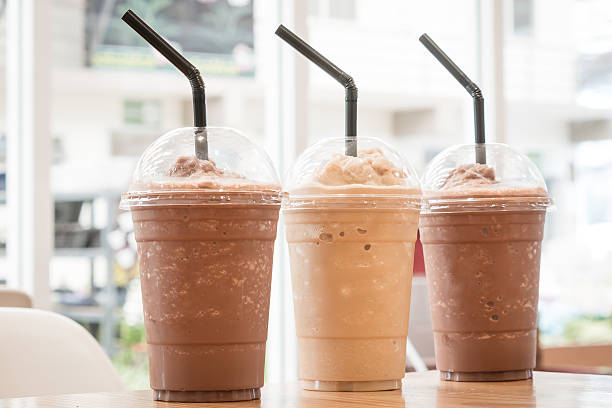
Enjoying tasty blended coffee beverages may not seem harmful, but the added sugars and empty calories cause belly fat to grow. “Frappuccinos and sugary lattes are great ways to treat yourself after a hard day once in a while, but many people make the mistake of believing these drinks can replace a regular cup of coffee,” Moody says. “A 16-ounce Frappuccino has around 380 calories, but a cup of black coffee typically has only five calories. This is more than a McDonald’s medium order of fries. You won’t lose weight with so much sugar and saturated fat.
Soft Drinks
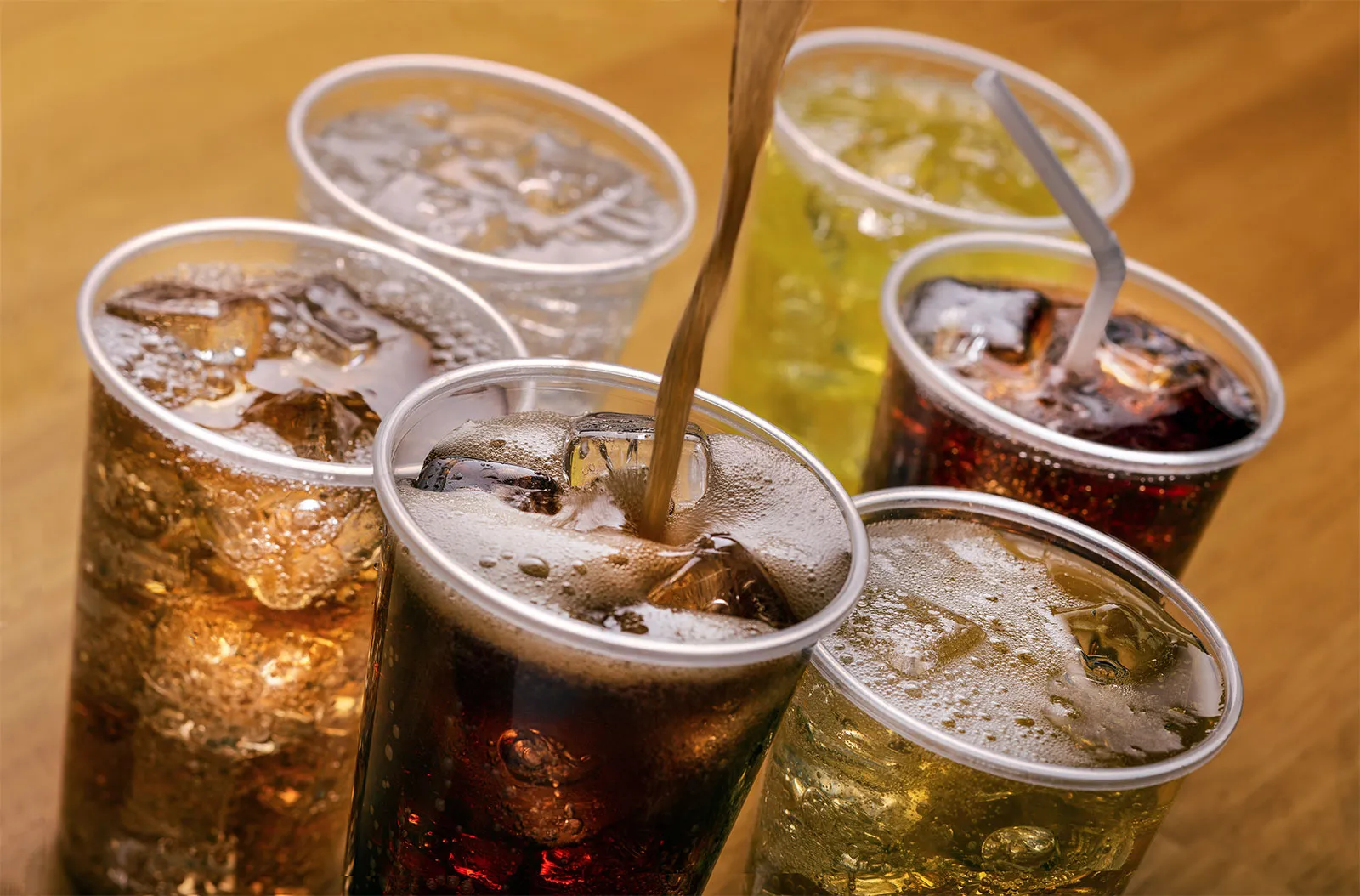
Another decadent beverage that contributes to belly obesity is soft drinks, which are high in added sugar and empty calories. Insulin surges brought on by their high sugar content might also result in abdominal fat accumulation. “Though sodas come in various flavors, they’re essentially carbonated, high-fructose corn syrup,” Moody explains. “The issue with sugar-filled drinks is that they cause your blood sugar to rise, which causes your body to draw water out of your cells to lower it. You get even more thirsty as a result, which may push you to drink more soda. Before you realize it, you’ve ingested hundreds of calories that aren’t nutritious and may cause weight gain very rapidly.
Fruit Juice
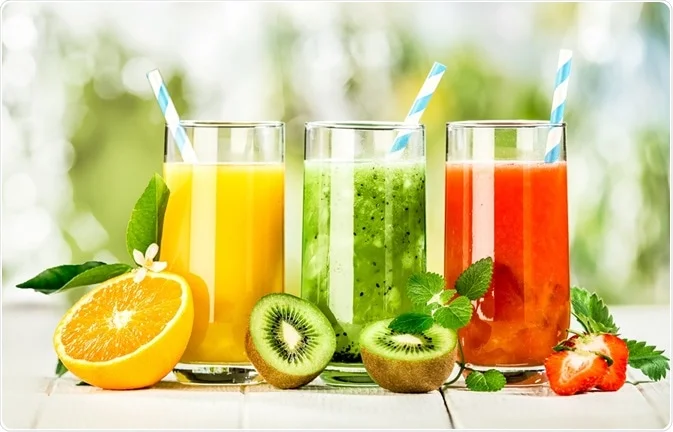
Despite its seemingly healthful appearance, fruit juice sometimes concentrates sugars without the nutritious fiber found in whole fruits. This may undermine your attempts to reduce abdominal fat and quickly raise blood sugar levels. “It’s misleading to believe that fruit juice helps you lose weight and stay healthy because it still contains sugar,” says Moody. Fruit juice lacks the fiber found in whole fruits, which helps you feel full and manage your calorie consumption. This might lead to you consuming a lot of sugar and calories quickly. Losing abdominal fat may become more difficult as a result.
Beer

The excess calories from alcohol can contribute to fat accumulation, particularly around the midsection. Plus, alcohol contains seven calories per gram, making it a no-go if you’re trying to lose weight. Moody tells us, “Beer contains wheat, which makes it high in calories. Alcohol, in general, alters the metabolism in a way that prompts the body to store its calories as fat in the midsection, thus where the term “beer belly” comes from. Alcohol is also inflammatory, and chronic inflammation is a primary driver of the accumulation of visceral fat.”
Cocktails
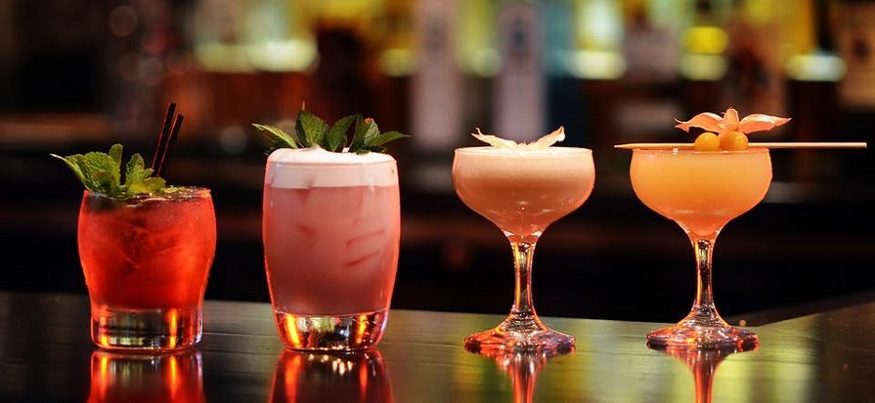
These calorie-dense concoctions are high in added sugars that can sneakily increase your overall calorie intake, causing belly fat storage. “Cocktails contain alcohol, which is a huge nemesis of weight loss. However, the real culprit when it comes to cocktails is the mixers. Cocktails often have sodas, fruit juice, and syrups added to make the spirits more enjoyable. However, combining these caloric ingredients high in refined, inflammatory sugars and alcohol makes a cocktail of its own: a cocktail for visceral fat gain,” says Moody.
Store-Bought Smoothies
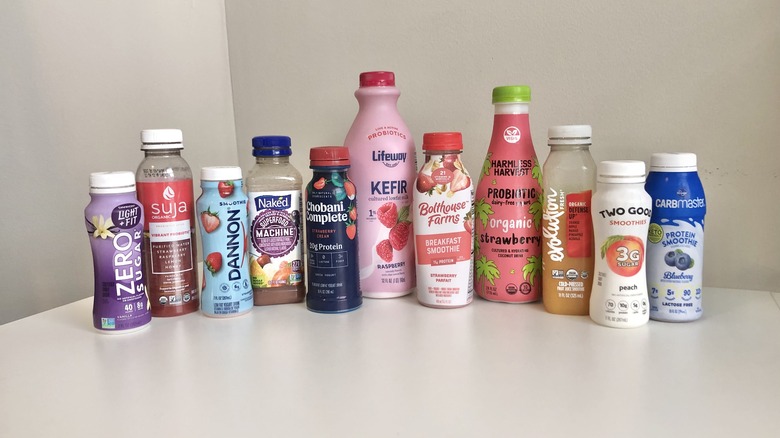
Smoothies may be a surprising item on this list, but store-bought or overly sweetened smoothies often contain way more calories than you’d expect. Loaded with sugars and often lacking in fiber, these drinks can lead to energy crashes and weight gain. “Smoothies, while they can be full of healthy ingredients like fruit and leafy greens, can also be loaded with sugar and lack protein unless it’s intentionally added,” says Moody. “This can trigger your hunger sooner than it should and cause overeating later on, which can cause belly fat gain to creep up on you
Sports Drinks
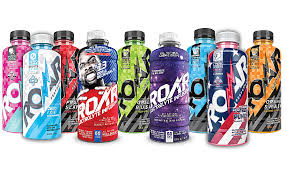
Despite their association with athleticism, sports drinks are often high in sugar and calories. Unless you regularly engage in intense physical activity, these beverages may lead to excess calorie intake and prevent you from melting belly fat. “Sports drinks are formulated specifically to deliver athletes sugar and electrolytes quickly to fuel their intense exercise,” Moody explains. “However, many people mistakenly believe drinking them during their leisure time is harmless. Sports dietitians don’t even recommend that athletes have sports drinks unless they exercise for more than an hour because of the sugar content. Even though the fruity, hydrating flavors taste great, an average sports drink contains about 220 calories without any nutrients, but plenty of added sugar.”
Milkshakes
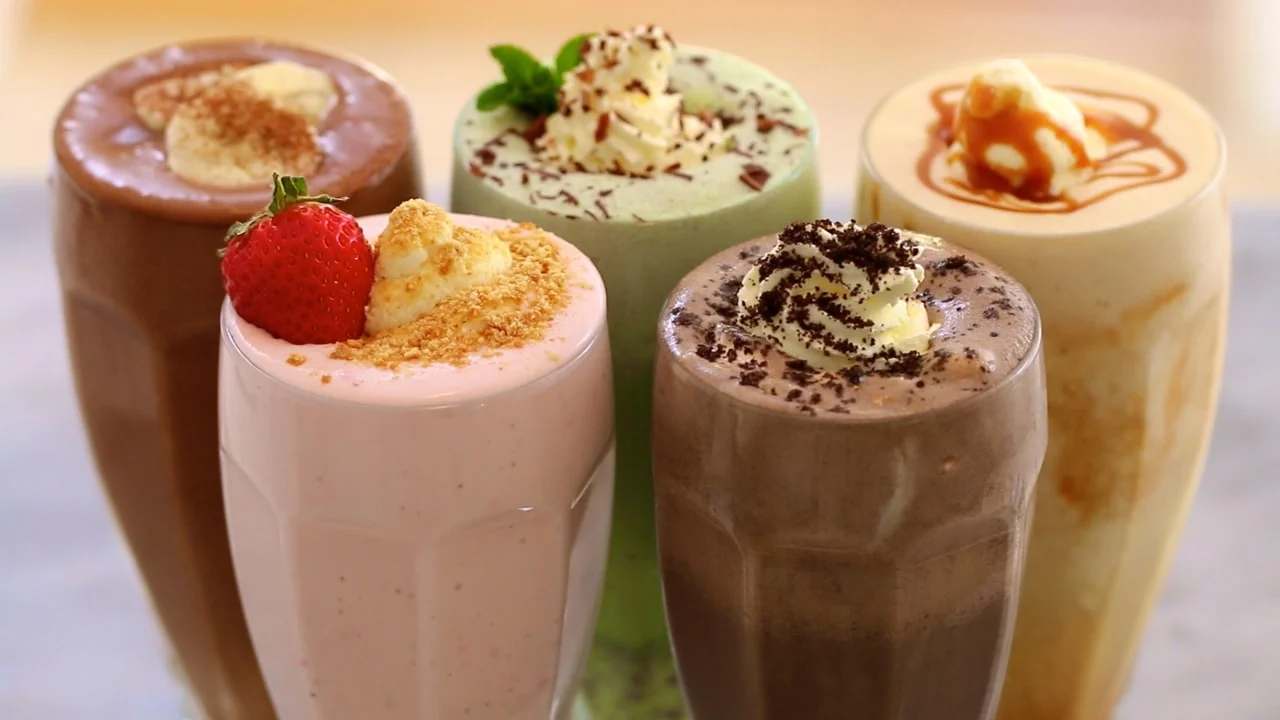
The combination of high sugar content and saturated fats in milkshakes is a primary culprit behind belly fat accumulation. Moody says, “Milkshakes are typically made with full-fat ice cream, which is loaded with saturated fat. Not only can the combination of sugar and saturated fat increase the risk of heart disease, but both inflammatory compounds can quickly increase visceral fat storage in the body.”
Slushies
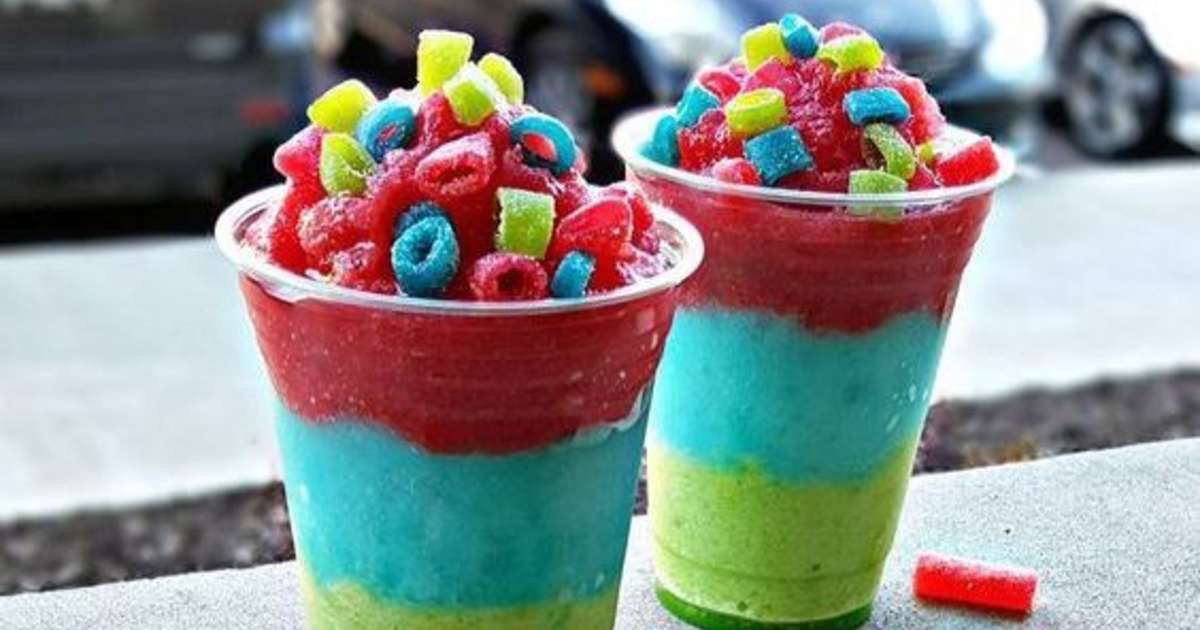
While slushies might be a refreshing treat, they’re often loaded with added sugars that cause insulin spikes, leading to belly fat storage. “Slushies are essentially finely crushed ice with added sugar and artificial colors added,” says Moody. “If you’ve ever let one last long enough to see it melt completely, it tends to look like syrup in a Styrofoam cup. Avoid the excess calories (and the brain freeze) by passing on these drinks.”
Energy Drinks
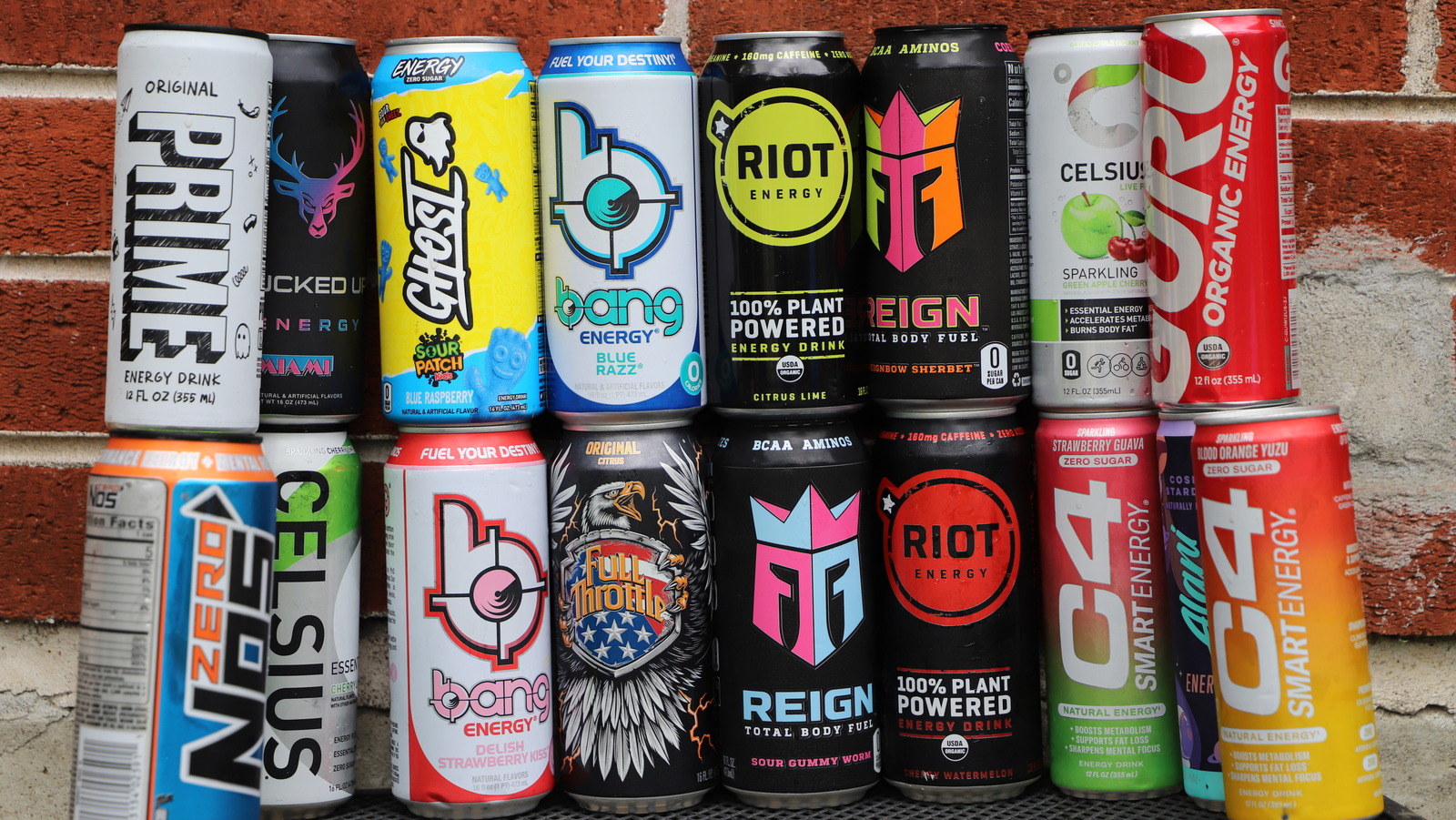
With their high caffeine and sugar content, energy drinks can provide a temporary energy boost but at the cost of increasing your belly fat. “Some energy drinks contain added sugar and excess calories, but many contain artificial sweeteners. Artificial sweeteners may have the potential to trick the body into thinking it’s receiving sugar when it isn’t. In turn, this can trigger your brain to seek out the sugar it was expecting, thus causing you to overeat and making losing belly fat more difficult,” says Moody.

